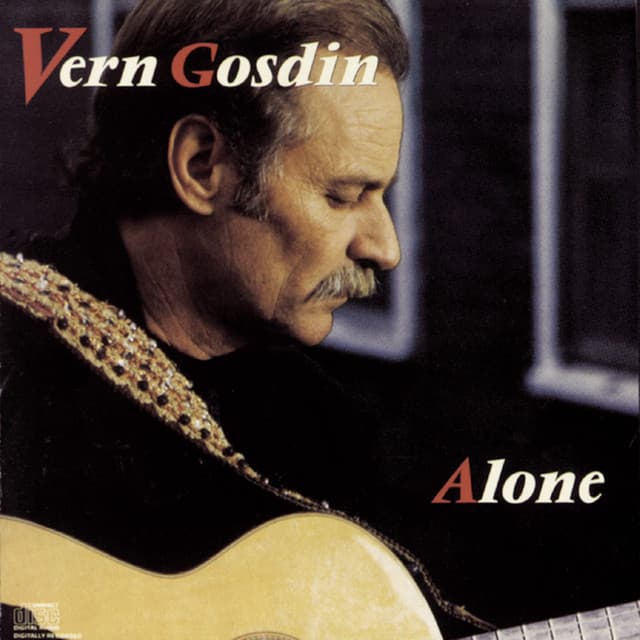
The Haunting Confession of a Man Who Just Can’t Let Go
There are certain voices in country music that don’t just sing a song; they inhabit it, breathing genuine, palpable hurt into every syllable. Vern Gosdin, affectionately known as “The Voice” by his peers, possessed such an instrument—a rich, tear-stained baritone that could wring every ounce of emotion from a lyric. When he released “I’m Still Crazy” in May 1989, it wasn’t just another hit; it was the poignant final chapter of his remarkable run of chart-topping singles.
This masterpiece of heartache was the lead single from the album Alone, which was released later that same year. And what a statement it made: “I’m Still Crazy” became Vern Gosdin’s third and final single to reach the coveted Number One spot on the US Billboard Hot Country Songs chart, holding the top position for one week, and repeating that feat on the Canadian RPM Country Tracks chart. It spent a total of fourteen weeks charting, cementing its status as a timeless piece of traditional country music during a decade that was rapidly shifting towards more polished sounds.
The story behind “I’m Still Crazy” is deeply personal, rooted in the genuine, painful dissolution of Gosdin’s own marriage. The album Alone was essentially a concept record, a raw, uncompromising chronicle of his breakup and the devastating loneliness that followed. This particular track, co-written by Vern Gosdin with his son, Steve Gosdin, and the highly respected songwriter Buddy Cannon, starts with one of the most brutal images in all of country music: waking up to a farewell note left on the pillow, or perhaps, as the lyrics suggest, a note upon his chest—a symbolic stake through the heart.
The song’s genius lies in its devastating simplicity and its crushing emotional honesty. The narrator, reeling from his partner’s departure, is trying to reconcile the loss with his enduring feelings. He confesses that his past love was so consuming (“I used to be crazy over you. Nobody else could move me like you used to”) that he convinced himself he would soon be over her. But the brutal truth arrives in the chorus—a devastating admission: “I’m still crazy, but I’m not over you.” It’s a gorgeous paradox that perfectly captures the irrationality of true love and residual attachment. The ‘crazy’ refers not just to his passionate past, but to the madness of being unable to move on when everything logical says he should.
For those of us who came of age with this music, “I’m Still Crazy” speaks to a shared memory of a different kind of country star—one whose gravel-and-whiskey voice felt authentic, like a true companion in the late-night hours of a broken heart. It’s a reminder of when the tear in the voice mattered more than the production gloss. This song is a snapshot of an artist at his most vulnerable, allowing us a glimpse into the kind of private, desolate moment only the steel guitar and Gosdin’s magnificent “Voice” could truly convey. It’s a classic because it doesn’t just tell a story of a breakup; it encapsulates the enduring, stubborn, and utterly illogical hope that defines being truly in love. You listen to it now and it’s not just a song; it’s a moment revisited, a tear shed for the man, Vern Gosdin, and for the part of ourselves that was once just as crazy.